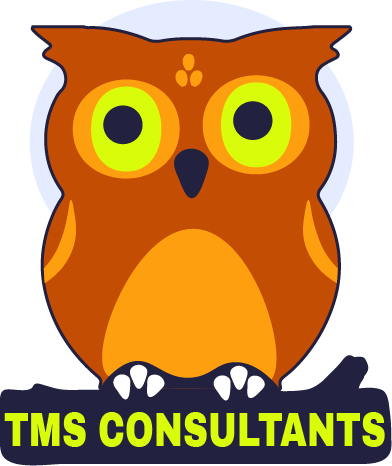
If you’re trying to increase traffic to your website, improving your ranking on search engines is crucial.
Optimising your keywords is one of the most effective ways to do this. Keyword optimisation is using relevant and targeted words and phrases throughout your website’s content so that search engines can quickly identify what your website is about.
When done correctly, this can help your website rank higher on search engine results pages, increasing visibility and traffic. However, finding the right keywords and using them effectively can be challenging.
In this post, we’ll explore the secrets of keyword optimisation and provide tips and tricks to help you improve your search engine rankings.
What is Keyword Optimisation, and Why is it Important?
Keyword optimisation is the process of researching, analysing, and selecting the right keywords relevant to your business, website, or blog. The aim is to use these keywords strategically in your content to increase your website’s or blog’s visibility on search engine results pages (SERPs).
Why is keyword optimisation important? Well, search engines like Google use algorithms to crawl through millions of web pages and rank them based on how relevant their content is to search queries. By optimising your content with the right keywords, you make it easier for search engines to understand what your content is about and therefore increase your chances of ranking higher on SERPs.
But it’s important to note that keyword optimisation isn’t just about stuffing your content with as many keywords as possible. That’s a tactic known as keyword stuffing, which can lead to penalties from search engines and hurt your rankings.
Instead, keyword optimisation should focus on creating high-quality, relevant, and engaging content that naturally incorporates keywords in the right places. By doing this, you’ll improve your search engine rankings, provide value to your audience, and attract more organic traffic to your website or blog.
- Keyword optimisation involves researching, analysing, and selecting relevant keywords for your business, website, or blog.
- The goal is to use these keywords strategically in your content to improve visibility on search engine results pages (SERPs).
- Search engines rank web pages based on how relevant their content is to search queries.
- Keyword stuffing is a tactic to avoid, as it can lead to penalties from search engines and hurt your rankings.
The Role of Keyword Research in Optimising SEO.
Keyword research is identifying and analysing the words and phrases people use to search for specific products or services on search engines. Conducting keyword research is the foundation of any successful SEO strategy.
Understanding what keywords your target audience uses to find information related to your business is crucial.
You can optimise your website content by identifying the right keywords to increase search engine visibility and attract more organic traffic.
To rank higher for certain keywords in search engine results pages, it’s important to strategically incorporate those keywords into your website content, meta tags, image tags, and URLs.
Using the right keywords in your website content can help search engines understand what your website is about, which in turn can improve your rankings for those keywords.
It’s important to remember, however, that keyword optimisation is not just about stuffing keywords into your content. It’s about creating high-quality, informative, engaging content that naturally incorporates those keywords.
In summary, conducting thorough keyword research is essential to optimising your SEO strategy. You can improve your search engine visibility and attract more organic traffic by identifying the right keywords and integrating them effectively into your website content.
1. Conduct Keyword Research
Keyword research is a critical step towards optimising your website for search engines. This process involves researching and analysing the most relevant keywords and phrases people use to search for products or services related to your business.
To conduct keyword research, brainstorm a list of potential keywords and phrases relevant to your business. You can also use tools like Google Keyword Planner, SEMrush, or Ahrefs to identify other relevant keywords and see how often they are searched.
Long-tail keywords
It’s also important to focus on ‘long-tail’ keywords, which are more specific, targeted phrases with less competition. For example, instead of targeting a broad keyword like “shoes”, you could target a more specific long-tail keyword like “women’s running shoes”.
Another factor to consider when conducting keyword research is search intent, which refers to the reason behind a user’s search query and what they hope to achieve. Are they looking for information, wanting to purchase, or seeking a specific business or location? Understanding search intent will help you choose the most relevant keywords and tailor your content to meet the user’s needs.
Overall, conducting thorough keyword research is essential for optimising your website for search engines and attracting the right audience to your business.
2. Understand Keyword Density and Frequency.
Regarding keyword optimisation, keyword density and frequency are two important factors. Keyword density refers to the percentage of times a keyword appears on a page in relation to the total number of words on that page. Whilst there is no set rule for the ideal keyword density, many experts believe that 1-3% density is optimal for search engine rankings.
On the other hand, keyword frequency refers to the number of times a keyword appears on a page. While using your targeted keywords throughout your content is important, overusing them can lead to keyword stuffing and negatively impact your search engine rankings.
Keyword density and quality
It’s important to remember that keyword density and frequency should never come at the expense of the quality and readability of your content. Your primary focus should always be providing valuable, informative content for your readers.
Using related keywords and synonyms throughout your content is important to avoid overusing your target keyword. This helps with keyword density and frequency and provides a better reading experience for your audience. By understanding and adequately implementing keyword density and frequency, you can optimise your content for search engines while providing high-quality content for your readers.
3. Create Quality Content Based on Keyword Research.
Creating quality content based on keyword research is crucial for higher search engine rankings. Keyword research is the foundation of SEO, but it’s not just about finding the right keywords for your website. It’s about using those keywords effectively to create valuable and relevant content to your target audience.
When you create high-quality and optimised content for the right keywords, you are more likely to attract the right people to your website. Search engines will recognise that your content is relevant to what people are searching for and rank your website higher in search results.
To create quality content based on keyword research, identify the topics and keywords relevant to your business and your target audience. Use keyword research tools to find out what people are searching for and what keywords are most relevant to your business. Then, create informative, engaging, and optimised content for those keywords.
It’s important to remember that keyword optimisation should not compromise the quality of your content. The content must be relevant, practical, and engaging to your audience. Writing for search engines only will not help, as it will make your writing sound robotic and unnatural.
In conclusion, creating quality content based on keyword research is essential for higher search engine rankings. By creating informative, engaging, and relevant content, you will improve your search engine rankings and attract and retain your target audience.
4. Use Meta Tags and Descriptions to Optimise Keywords.
Meta tags and descriptions are an essential part of keyword optimisation. They are the first thing search engines look for when crawling your website. Meta tags and descriptions are HTML elements that provide information about your webpage to search engines and website visitors.
Meta tags are invisible to visitors but give search engines an idea of your webpage. They include the title tag, keyword tag, and description tag. The title tag is the most critical meta tag because it tells search engines what the page is about and can affect its ranking. It should include the main keyword at the beginning of the title to make it more visible to search engines.
Title tag
An example of a meta tag is the “title” tag, which appears at the top of each page and tells search engines what the page is about. An effective title tag should be concise, descriptive, and include a targeted keyword.
Meta description tag
Another example is the “meta description” tag, which provides a brief summary of the page. It should be no longer than 160 characters and should include relevant keywords.
The keyword tag is less important than the title tag but still provides information about the keywords used on the page. It should include relevant keywords used on the page and can help improve the page’s ranking.
The description tag is a summary of what the page is about. It should include a call-to-action and be written engagingly to encourage users to click the link. The description tag also helps search engines understand what the page is about and can improve its ranking.
In summary, using meta tags and descriptions is crucial for keyword optimisation. They provide essential information about your webpage to search engines and website visitors, which can improve your page’s ranking and attract more traffic to your site.
5. Learn The Importance of Internal and External Linking for SEO
Internal and external linking are two important factors in SEO that can help improve your search engine rankings. Internal linking involves linking to other pages within your website, while external linking involves linking to other websites. Both have their benefits when it comes to SEO.
Internal linking helps search engines understand the structure of your website and the relationship between different pages. It also helps to distribute link equity throughout your website, improving the rankings of all pages. By linking to relevant pages within your website, you can also keep users engaged and on your site for longer, improving your overall website metrics and increasing the chances of conversions.
External linking, on the other hand, helps search engines understand the relevance and authority of your website. By linking to high-quality, authoritative websites, you show search engines that your website is credible and trustworthy and can help improve your rankings, as search engines often use external links to judge a website’s quality and relevance.
It’s important to note that quality is more important than quantity when it comes to external linking. Linking to low-quality or spammy websites can hurt your rankings, so be sure to only link to high-quality, reputable websites.
In summary, internal and external linking are important SEO elements that can help improve your search engine rankings. By using both effectively, you can help search engines understand your website’s structure, relevance, and authority, which can lead to better rankings and increased traffic.
6. Avoiding Keyword Stuffing and Other Black Hat Techniques.
One of the most important things to remember when optimising your website for search engines is to avoid black hat techniques, such as keyword stuffing. Keyword stuffing is the practice of loading your content with an excessive number of keywords in an attempt to manipulate search engine rankings.
This practice can result in search engine penalties and ultimately harm your website’s ranking. Instead of cramming as many keywords as possible into your content, focus on creating high-quality, valuable content that naturally incorporates relevant keywords.
Other black hat techniques to avoid are using invisible text, doorway pages, and link farms. These practices aim to trick search engines into thinking your website is more valuable or relevant than it actually is.
In the long run, utilising black hat techniques can do more harm than good for your website’s search engine rankings. It’s much better to focus on ethical and effective SEO practices, such as creating high-quality content and building relevant backlinks. Doing so creates a strong foundation for your website’s optimisation and improves your chances of ranking higher in search engine results pages.
7. Stay Competitive with Ongoing Keyword Analysis
Keyword optimisation is not a one-time task; it requires ongoing analysis to ensure your website remains competitive in search engine rankings. The online market is an ever-changing landscape, and consumer behaviour changes frequently. As a result, the keywords consumers use to search for products and services will also change. Therefore, you need to stay on top of your keyword analysis to ensure your website optimises with the most relevant and high-ranking keywords.
To stay competitive with ongoing keyword analysis, you must use keyword research tools to identify new or trending keywords. You should also analyse your website’s performance with the current keywords and make necessary adjustments. You can track your website’s ranking in search engine results pages, monitor your competitors’ keywords, and adjust your strategy accordingly.
The goal of keyword optimisation is to provide a better user experience by delivering relevant content to users searching for specific keywords. Therefore, you should create high-quality content incorporating relevant and strategically placed keywords.
In conclusion, staying competitive with ongoing keyword analysis is crucial for higher search engine rankings. By using keyword research tools, monitoring your website’s performance, and providing high-quality content, you can ensure that your website remains optimised with the most relevant and high-ranking keywords.
Measure the Success of Keyword Optimisation and SEO Efforts.
After putting in the time and effort to optimise your website for keywords and improve your SEO, it’s essential to measure the success of these efforts, as this will help you understand what’s working and what’s not and make necessary adjustments to improve your rankings further.
One of the most important metrics to track is your website’s organic traffic. You can use tools like Google Analytics to see how much traffic you get from search engines and which keywords drive that traffic. If you notice an increase in organic traffic after optimising for specific keywords, it’s a good sign that your efforts are paying off.
Another metric to track is your website’s search engine rankings for target keywords. You can use tools like SEMrush or Ahrefs to see where your website ranks for specific keywords and track changes over time. If you notice an upward trend in your rankings for target keywords, it’s a sign that your keyword optimisation and SEO efforts are working well.
It’s also important to track other metrics like bounce rate, time on site, and conversion rate. If you notice high bounce rates or low conversion rates for pages optimised for certain keywords, it may be a sign that you need to adjust your optimisation strategy.
Overall, measuring the success of your keyword optimisation and SEO efforts is crucial for improving your search engine rankings and driving more organic traffic to your website. Regularly tracking these metrics allows you to make data-driven decisions and achieve better results.
We hope you found our article on unlocking the secrets of keyword optimisation helpful in boosting your website’s search engine rankings.
As we’ve explained, keyword optimisation is crucial to any successful SEO strategy. By following the tips we’ve outlined, you should be able to see an improvement in your website’s ranking and ultimately attract more visitors to your site.
Remember, while keyword optimisation is important, it’s not the only factor determining your website’s ranking. A well-rounded SEO strategy with quality content, link building, and technical optimisation is essential for long-term success. Keep working on your SEO strategy and watch your website soar to the top of search engine results pages.



